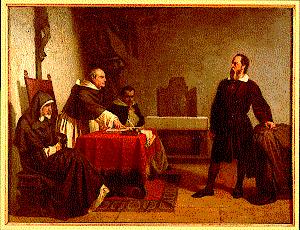 Orientation
Orientation

| Index: | Instructor | Orientation | Topics | Ancillary Materials | Written Work | Grades | Abstracts |
|---|
Now that all on-ground classes at MTSU have been moved to remote learning contexts, this page and its links will serve as our primary vehicle for conducting our scholarship in the weeks ahead. As you are doubtless aware, we are aiming at a moving target at the same time that the sands are shifting beneath our feet. Unlike the attention we are all able to give one another during a regular class period, our foci may be distracted occasionally by the exigencies of daily life in a time of pandemic plague. Even so, it is worth remembering that even in the best of times, the vast bulk of our learning happens outside the meagre fifty-five minutes we share on any given day. Class lectures are like bread recipes: they specify ingredients and provide some direction for mixing, kneeding, and baking; but you are, and have always been, your own bakers. The modules to which you will be directed as we proceed will simply approximate the lists of ingredients and specific instructions you would have otherwise encountered in class. Of course, this is less than ideal, but let us remember that every idea, every text, every insight we will be studying throughout the rest of this term was created, polished, and disseminated long before the advent of video conferencing and the instant karma we collect on cell phones; we'll be fine without the bells and whistles; after all, most learning in the 17th and 18th centuries was remote.
The syllabus for this class, then, will remain essentially unaltered; only the methods of intellectual exchange will have changed. To consult the original main syllabus page and its links, direct your browser here: Original Course Syllabus

 Topics
Topics 
Intended to stand in for one class period each, the topic modules below will provide you with:
(a) A short introductory text and/or 5 minute audio digest
(b) Extensive lecture notes and/or a 15-20 minute podcast
(c) Reminders and assignments for the next module
The following ancillary class notes should be consulted as needed:
 Written Assignments
Written Assignments 
Additionally, the course requires submission of an interpretive essay (in the form of a research paper), not to exceed fifteen (15) double spaced typed pages. This assignment asks that you review and analyze the contribution(s) of a major historical figure to some specific field of inquiry (epistemology, metaphysics, ethics, philosophy of mind, etc.). Topics for the interpretive essay should be chosen around spring break, with the paper due at the end of term. See the course bibliography for sources relevant to this assignment.
 Examinations and Grades
Examinations and Grades 
There will be a final examination in this course.
Final grades will be assigned according to the following distribution of points (total possible points = 200):
(a) The abstracts (24 pts. each): 72 pts.
(b) The interpretive essay: 54 pts.
(c) The final examination: 54 pts.
(d) Attendance & class participation: 20 pts.
and according to the following scale:
176-200 = A
152-175 = B
128-151 = C
104-127 = D
under 104 = F
 Schedule of Topics for the Philosophical Abstracts
Schedule of Topics for the Philosophical Abstracts

| Instructor: | RonBombardi
Department ofPhilosophy Middle Tennessee StateUniversity |
|---|---|
| Email: | Ron Bombardi |
| Office: | James Union Building: Room 307 |
| Telephone: | 615-898-2049 |
| Office Hours: | None until further notice |